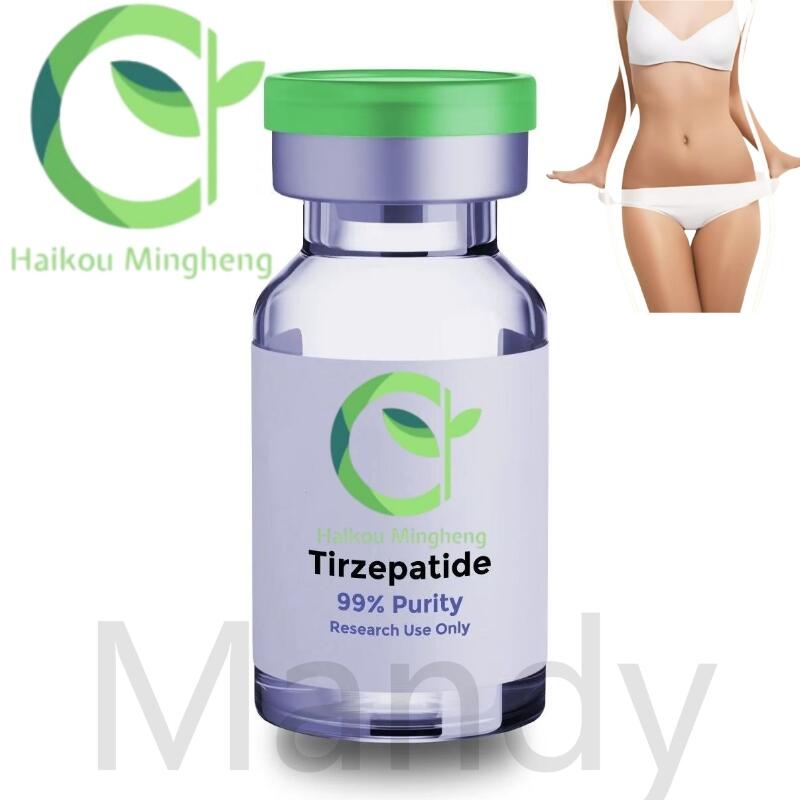What are the advantages of peptides?
-
Last Update: 2019-08-09
-
Source: Internet
-
Author: User
Search more information of high quality chemicals, good prices and reliable suppliers, visit
www.echemi.com
Peptide has many functions in human body, which is very important to human physiological activities Before, however, most people had no idea what the peptide was doing in the body Human body contains not only protein and amino acid, but also a variety of peptides We often refer to the small molecule active peptide, which is beneficial to life activities or has physiological effects Where is the advantage of peptide? 1 Easily absorbed Peptide is the most active functional decomposition between macromolecular protein and micromolecular amino acid, and the other two thirds are absorbed in the form of peptide Peptide form is better than amino acid form, because in the absorption process, amino acid consumes more energy, absorbs slowly, has low absorption rate, and is prone to diarrhea due to high osmotic pressure The peptide is absorbed by human body directly in its functional form, which not only consumes less energy, but also has an absorption rate of almost 100%, which is helpful to prevent high permeability diarrhea This shows that the biological and nutritional value of peptide is higher than that of amino acid 2 Unique physiological function In addition to being more easily absorbed, the more important value of peptide is that it has unique physiological activity and medical and health care function that protein and amino acid do not have, and has triple effects of nutrition, health care and treatment There are active peptides in various tissues of organism, such as skeleton, muscle, sensory organ, digestive system, endocrine system, reproductive system, immune system, peripheral and central nervous system, etc specific oligopeptides and peptides have various functions of human metabolism and physiological regulation, which can regulate the vegetative nervous system, activate cellular immune function, improve cardiovascular function and anti-aging, etc It also has the functions of hormone regulation, antibacterial, antiviral, information transmission, mineral absorption, detoxification, liver nourishing, stomach nourishing and beauty nourishing "Peptide" recognized by medical authority Improve immunity Antioxidation Anti aging Antitumor Antibacterials reduce blood pressure, etc Peptide can play a strong physiological activity in a small amount of state Some regulatory peptides have a short half-life and do not accumulate in the body It can be said that "small quantity, great effect" 3 Rich nutritional value In addition to being a high-quality, safe and reliable nitrogen source, active peptide can directly participate in protein metabolism, correct malnutrition caused by metabolic abnormalities, increased body consumption, reduced intake and other reasons, but also has rich nutritional value The biological active substances contained in different active peptides have many special biological functions, which have been used in clinical nutrition support and treatment Broad application prospects And peptide collagen peptide, not only rich in 18 amino acids, can meet the daily needs of the human body, but also can enhance the human body's immunity and resist the arrival of diseases 4 Clinical application of peptide At present, a variety of bioactive peptides have been isolated from animals, plants and microorganisms by enzymatic hydrolysis in vitro Peptide can be absorbed directly by intestines without degradation, and its absorption rate and rate are higher than protein and amino acid, so it can be used as enteral nutrition preparation or provided to people with special diseases in the form of liquid food In clinical nutrition treatment, it is common in patients with gastrointestinal dysfunction, unable or unwilling to eat to meet the needs of the body and patients with poor prognosis, such as pancreatitis, infectious intestinal diseases, short bowel syndrome, postoperative surgery, severe burns, etc In addition to nutritional support, it is also used in clinical practice: Promote insulin secretion and function; Prevent and delay the occurrence and development of atherosclerosis; Delay aging, improve memory of the elderly; Prevention and treatment of diabetes, hypertension and hyperlipidemia; Treatment of gastrointestinal stress ulcer; Treatment of some autoimmune diseases (such as rheumatoid arthritis, systemic lupus erythematosus, etc.), various diseases with low cellular immune function; Promote bone growth, treat osteoporosis and dwarfism; Adjuvant treatment of tumor, as well as nervous system, fertility defects, gynecology or obstetrics, urinary system, pain, ophthalmology and other diseases.
This article is an English version of an article which is originally in the Chinese language on echemi.com and is provided for information purposes only.
This website makes no representation or warranty of any kind, either expressed or implied, as to the accuracy, completeness ownership or reliability of
the article or any translations thereof. If you have any concerns or complaints relating to the article, please send an email, providing a detailed
description of the concern or complaint, to
service@echemi.com. A staff member will contact you within 5 working days. Once verified, infringing content
will be removed immediately.







